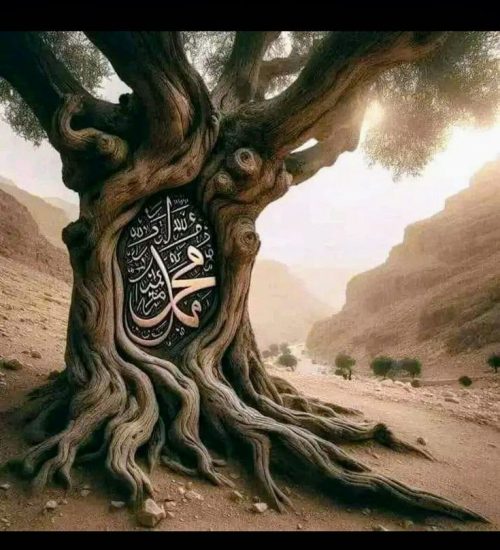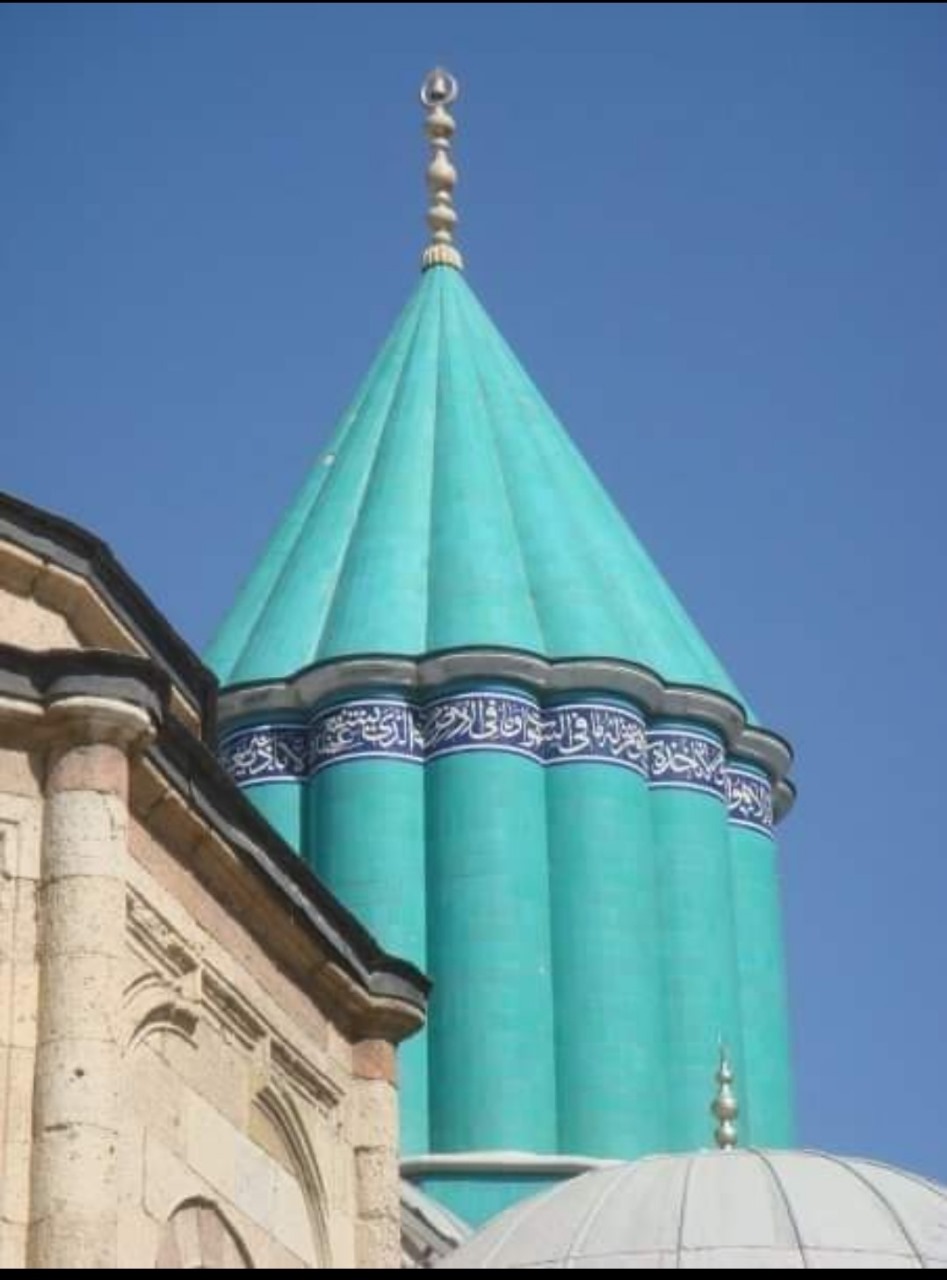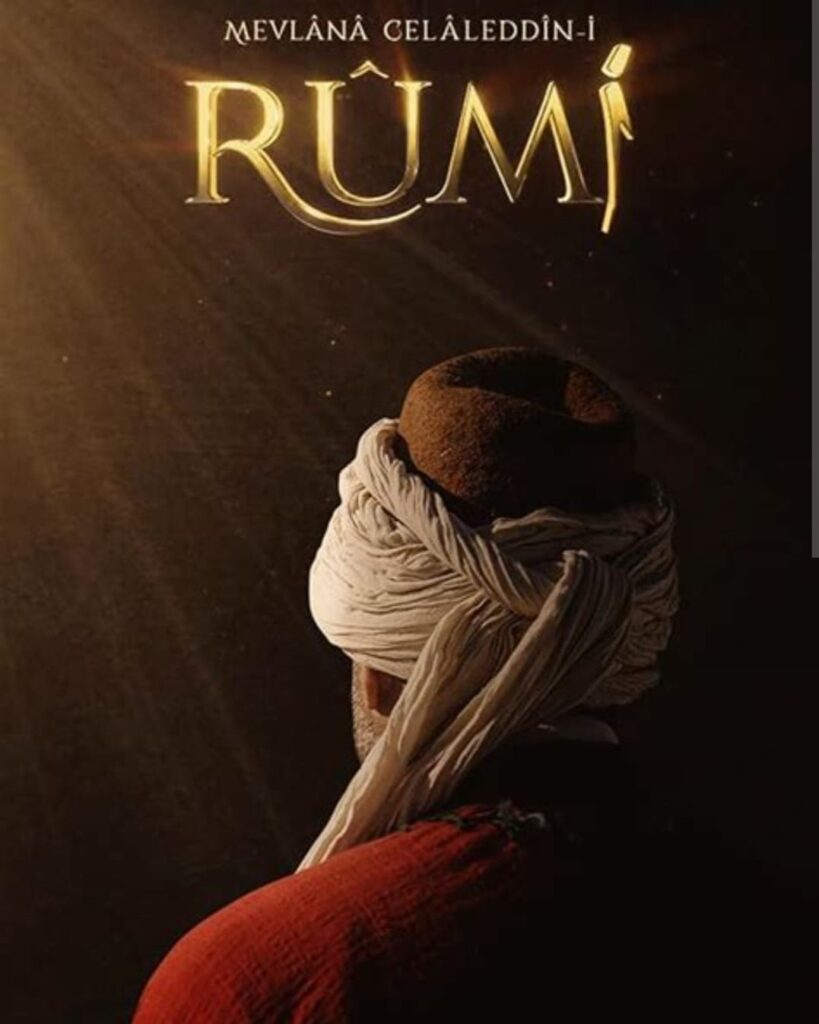Miracles of Hazrat Muhammad (SAW)
Hannana was the tree that served as pillar in the mosque where Hazrat Muhammad (saw) addressed people. While sitting on the floor, Hazrat Muhammad ( used to rest his back against this tree. A group of people approached Hazrat Muhammad (saw) and requested that they not see his blessed face while he was addressing them. So, it was decided that a properly elevated (minbar) podium shall be constructed, and Hazrat Muhammad (saw) shall address people sitting on that podium. When the podium had been erected, Hazrat Muhammad (saw) had left his usual place; the tree feels dejected and is said to weep bitterly at this separation from Hazrat Muhammad (saw).
Hannana had wept so bitterly during a sermon that all young and old had noticed. The companions of Hazrat Muhammad (saw) were deeply amazed. The pillar was shaking all over with grief. The leader of the compassionate Hazrat Muhammad (saw) had asked the tree what it wanted. The tree replied that it had been unbearable to endure parting with the sacred company of Hazrat Muhammad (saw). Hannana said: My soul is in deep grief; I am burned to ashes; I must weep at such a loss, so why must I not shed tears? I was your blessed seat, and now you have parted with me.
Hazrat Muhammad (saw) replied: kind tree, you have such a blessed soul; state your wish. You may become a date tree, and people from the East and West will enjoy your sweet fruit. Or you may be resurrected as a Cypress in the world hereafter, where you shall remain evergreen. The tree had thus answered: I’d like to enjoy eternity. Therefore, the tree was buried under the earth like humans and shall be resurrected on Doom’s Day.


A window to Mathnavi Maulvi Ma’nvi
Translation and Commentary Seema Arif
Further Links for Rumi

Rumi asks his readers at the end: Would they like to wish for something lesser for themselves than a piece of wood?
A dead tree had preferred for itself eternity in the world hereafter overabundant sweet fruits in this world. The date tree is not just a fruit tree; it is also considered sacred in Arabia, and the cypress is a
Persian evergreen tree that does not bear any fruit or shade in this world. It is liked for its beauty and fragrance, mostly used as a simile for the beloved’s tall and slender body in the poetry. Rumi states the moral of the story before indulging in a discourse on the topic
Reckon! Whoever has some business with God
He is worthless for all states and deeds in world.
One who with knowledge ulterior is not blessed?
Admits not a lifeless like humans can weep, regret
Agree he may in words but not with his heart,
Fearing he may be reckoned a hypocrite wart.
“Be” is the principle we all must agree with (1)
The only proof provided that miracles do exist.
NOTES
- God says: Be and it is. (Qur’an: 2:117, 3:59, 6:73, 19:35, 25:7, 40:68) It is to demonstrate here that nothing is beyond the command of God. Everything glorifies Allah: Allah says in the Qur’an: the seven heavens and the earth and all that is therein, meaning the creatures that dwell therein, sanctify Him, exalt Him, venerate Him, glorify Him, and magnify Him far above what these idolators say, and they bear witness that He is One in His Lordship and Divinity. In everything, there is a sign of Allah indicating He is One. Click for Detail:
Ibn Arabi has told us in Fusus al Hikam that the Messenger knows that when something inimitable is manifested in the community, some believe in it, and some recognize it but deny it out of injustice, arrogance, or envy. Some of them attribute it to magic and deception. The Messenger realizes that and acknowledges that no one will believe unless Allah illuminates his heart with the light of belief. When the person does not look by that light called belief, the inimitable miracle has no benefit for him. Their aspiration does not seek inimitable matters since the effect is not uniform among those who see it, nor is it in their hearts, as He said in respect to the most perfect of Messengers and the most knowing of creation and the most truthful in the state, “You cannot guide those you would like to, but Allah guides those He wills” (28:56).
( Copyright 2024 ) Dr. Seema Arif All rights reserved.
All material on this page is Seema Arif’s original writing. Using it in any form of publication and print media without prior permission will be considered a violation of rights. When quoting research papers, proper referencing should be used.





